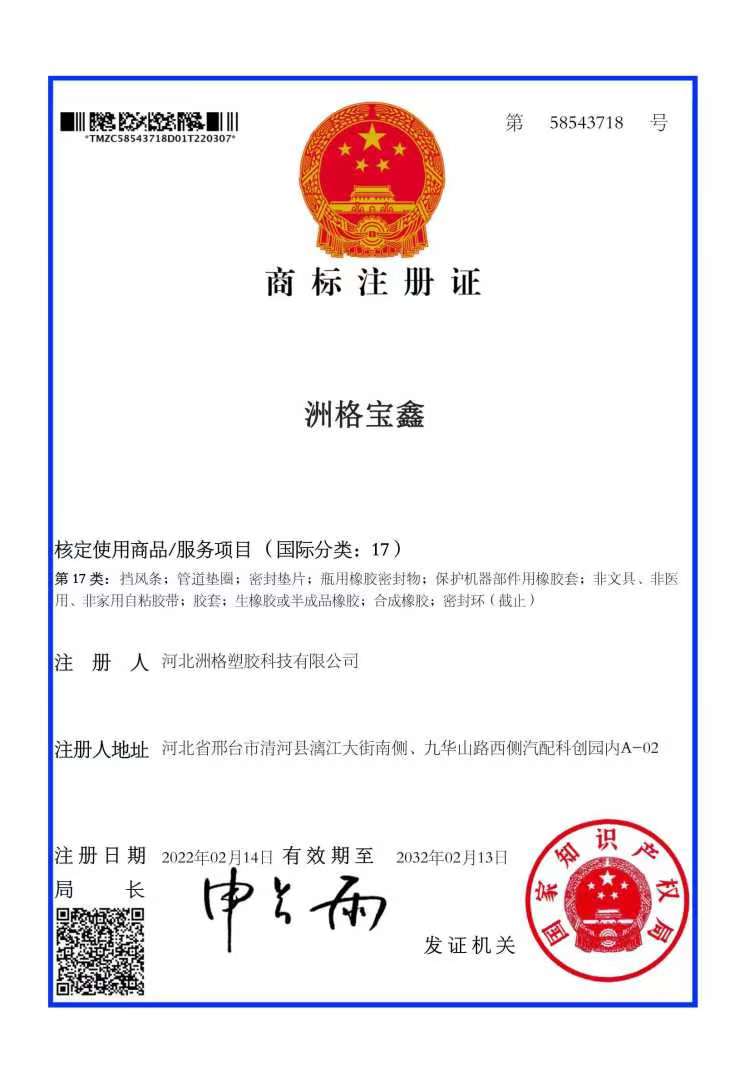Aug . 13, 2024 16:55 Back to list
Exploring the Leading Manufacturers of EPDM Rubber Sheets and Their Quality Standards
Understanding EPDM Rubber Sheet Factories An Overview
EPDM (Ethylene Propylene Diene Monomer) rubber is a versatile and durable synthetic rubber widely used across various industries. It is particularly valued for its resistance to weathering, ozone, UV radiation, and extreme temperatures. This has led to a significant demand for EPDM rubber sheets, which are produced by specialized factories worldwide. In this article, we will explore the key aspects of EPDM rubber sheet factories, including their manufacturing processes, applications, and the advantages they offer.
Manufacturing Processes
The production of EPDM rubber sheets involves several key steps. Initially, raw materials are sourced, primarily ethylene and propylene, which are derived from petroleum or natural gas. The polymerization process converts these materials into a rubber compound, to which various additives such as fillers, accelerators, and stabilizers are added. These ingredients enhance the properties of the rubber, ensuring it meets specific performance criteria.
Once the compound is ready, it undergoes a series of processes, including mixing, milling, and calendering. Mixing involves blending the rubber with additives in large, heavy-duty machines, ensuring uniformity in the compound. Milling transforms the mixture into sheets, while calendering further processes these sheets into specific thicknesses and widths as per customer requirements.
After the sheets are formed, they are cured or vulcanized to enhance their structural integrity and rubber-like properties. This is achieved by applying heat and pressure, leading to cross-linking of the polymer chains. Once cured, the EPDM sheets are cooled and cut into the desired shapes and sizes, ready for distribution.
Applications of EPDM Rubber Sheets
EPDM rubber sheets are used in a wide range of applications due to their excellent physical properties. One prominent application is in roofing systems, particularly for commercial and residential buildings. EPDM roofing membranes are favored for their durability and resistance to weathering, making them an ideal choice for flat roofs.
epdm rubber sheet factories

Another significant application is in automotive parts, where EPDM is used for seals, gaskets, and insulation. The rubber's ability to withstand extreme temperatures and resist aging makes it suitable for various under-hood applications.
Additionally, EPDM rubber sheets are utilized in various industrial applications, including conveyor belts, gaskets for machinery, and vibration damping products. Their resistance to chemicals and long service life also makes them a preferred choice in the manufacturing of products for the agricultural and construction industries.
Advantages of EPDM Rubber Sheets
One of the primary advantages of EPDM rubber sheet factories is their ability to produce high-quality, customized products that meet specific industry standards. The manufacturing processes allow for variations in thickness, color, and surface texture, catering to diverse customer needs.
Moreover, EPDM rubber sheets are eco-friendly, as they are often produced using sustainable practices and can be recycled at the end of their life cycle. This aligns well with the growing emphasis on sustainability and environmental responsibility in manufacturing.
In terms of cost-effectiveness, EPDM rubber sheets offer an attractive solution for businesses. Their long lifespan reduces the need for frequent replacements, thereby lowering overall maintenance costs.
Conclusion
In summary, EPDM rubber sheet factories play a crucial role in various industries by providing high-quality, durable products that meet a wide range of applications. The advanced manufacturing processes, combined with the inherent properties of EPDM rubber, ensure that these sheets are reliable and efficient. As industries continue to prioritize performance and sustainability, the demand for EPDM rubber sheets is expected to grow, further underscoring the importance of these specialized factories globally.
Next:




